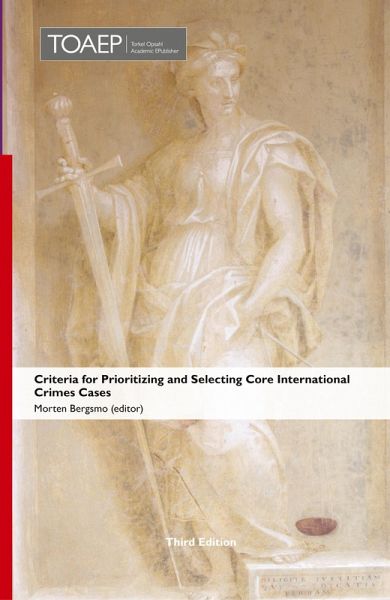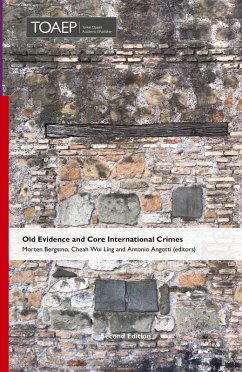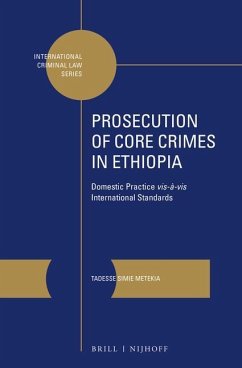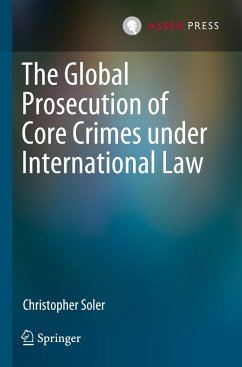
Criteria for Prioritizing and Selecting Core International Crimes Cases
Versandkostenfrei!
Versandfertig in über 4 Wochen
32,99 €
inkl. MwSt.

PAYBACK Punkte
16 °P sammeln!
Selection and prioritization criteria can be made and applied by prosecutors, as a professional response to backlogs or surges of cases, reducing the risk of politicization of prosecutorial discretion. Prioritization should bring the best-suited cases to trial first. It does not entail de-selection of cases. By offering a wealth of information and in-depth analyses of key documents, this book is useful to those who seek to develop, fine-tune, apply or critique selection or prioritization criteria and would like to learn from the insights of others or from practice. With 26 chapters, organized ...
Selection and prioritization criteria can be made and applied by prosecutors, as a professional response to backlogs or surges of cases, reducing the risk of politicization of prosecutorial discretion. Prioritization should bring the best-suited cases to trial first. It does not entail de-selection of cases. By offering a wealth of information and in-depth analyses of key documents, this book is useful to those who seek to develop, fine-tune, apply or critique selection or prioritization criteria and would like to learn from the insights of others or from practice. With 26 chapters, organized in four parts (on the nature and context of criteria, experiences of international(ized) and national jurisdictions, and analyses of key interests), the book has contributions by Xabier Agirre Aranburu, Fadillah Agus, Anees Ahmed, Claudia Angermaier, Alejandro Aponte Cardona, Devasheesh Bais, Terry M. Beitner, Olympia Bekou, Julija Bogoeva, Margaux Day, Richard J. Dicker, Rolf Einar Fife, Siri S. Frigaard, Mirna Goransky, Christopher K. Hall, Natäa Kandi¿, Zekerija Mujkanovi¿, Alex Obote-Odora, Megumi Ochi, María Luisa Piqué, Rod Rastan, María Paula Saffon, Paul Seils, Aida ¿u¿i¿, Vesna Terseli¿, Vladimir Tochilovsky, Mirsad Tokäa and Ilia Utmelidze, in addition to two chapters by the editor Morten Bergsmo. The Third Edition has been substantially revised, with eight new chapters. Many of the old chapters are materially updated, and TOAEP's 2024 copy-editing standards (including hyperlinks to all relevant legal sources, better indexation, and e-book navigation) are applied throughout the manuscript.












